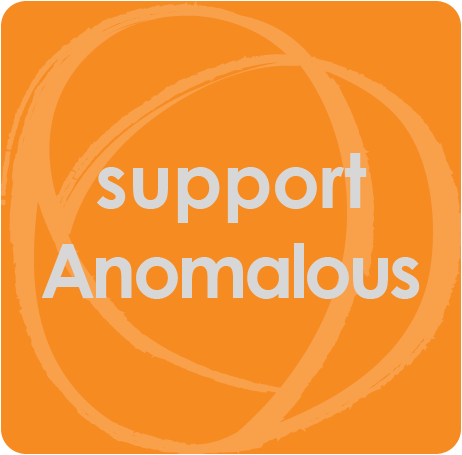Your Sick
Kelly Magee and Carol Guess
We said In sickness and in health, and the state made it legal. I wore yellow and you wore blue. Together we shimmered between hunter and emerald. We hired a DJ. Guests slept on the floor.
We were one of the first of our kind to divorce: my lips pursed, your fingernails sharp. I deleted your email, your number, your ring. Our friends were angry, as if we’d done it to them.
A few years later we met at a conference. I was on business; you ran the hotel. You discounted my stay, sent a bottle of wine. You were generous and cheerful and used my full name.
That night the phone rang while I was taking a shower. We talked about rain, what we missed about thunder. Later that night you knocked on my door. We didn’t mention our invisible We.
After the conference, I called and texted but you didn’t answer. A few months later I worked up the nerve to visit the hotel, a day’s drive away in a minor city.
Don’t forget she took you to court.
But I’d forgotten everything except the taste of your mouth.
When I got to the hotel I tried to page you. I repeated your name over and over. No one at the hotel had ever heard of you. I paced the lobby, trying to decide what to do.
I decided to eat dinner in the hotel restaurant. The waiter sat me near the kitchen, which bothered me until I realized I could see everyone in the room: suits and soldiers, families and prostitutes. At first I didn’t notice you in a chair by the window. Lipstick, and you’d dyed your hair. You were talking to a very beautiful woman. The wine was the wine you’d sent to my room.
I finished my dinner. As I left the restaurant I dropped my check on your table and smiled at your date. You wore a nametag, but it wasn’t your name. You looked up at me and your eyes glazed with panic.
Later that night you knocked on my door. Just to be sure it was you I called out your old name and your new name, both.
It’s me, you said. I wasn’t sure which me you meant, which name to use, but it didn’t matter. You ran your fingers through my hair. You pressed me up against the sink and things happened which weren’t supposed to happen, now that we weren’t together.
You had the key to every room.
In one of those rooms you made me sick.
Sickness slid from lips to cheek, hairline to hipbone, bruise to nick.
Your sickness swam the skeins of my blood, but I didn’t know. I didn’t know anything.
Your new name was Yetta. Your old name also began with Y, but I was beginning to wonder if your old name was fake. Were you Yetta, Yelena, or Yumi? Yvonne or Yolanda? Ysolde or Yael?
I stayed in the hotel for a week. Every morning you slipped me a key and every evening you looked slightly different. You walked into the room and in five seconds flat we were on the bed. I made you get up and take off the comforter. No offense, I said. I’m sure it’s clean. I didn’t call out your name during sex. I praised other things.
Finally I asked about Yetta.
On casual Fridays we change our names to whatever.
I rolled you over and straddled you and pinned your hands to the headboard. Tell me the truth.
The truth about what?
Anything.
Anything?
Something.
I’m sick.
I unpinned your hands.
It’s contagious.
You’re kidding.
This isn’t a joke.
Get out of my room.
Don’t you want to know what I gave you?
I went into the bathroom and locked the door.
You turned on the TV. I could hear conservative pundits and the shopping channel. I flooded the shower, bathtub, and sink.
When I opened the door you were gone.
It took me a while to notice the note taped to the phone:
Dear Emily,
Please don’t contact me again. I’ve moved on and so should you. I thought you could handle something casual but clearly you’re still an emotional vortex. Also I’m sorry I made you sick, but it’s not that bad. You might even like it.
Ex,
Y
I read the note several times. Then I lay on the bed and scanned my body, like in yoga class, except I was looking for you. Whatever you left behind in me. The microchip, the shard of stained glass you slid behind my knee or into the crook of my arm. Marks like a spider bite, the venom already in my bloodstream.
What is it? I said to the empty room. Where is it?
I put a hand over my throat, felt for the pulse. My fingers found it – thump, thump – and then it stopped. I pressed harder. Minutes passed and then, just as abruptly, the thumping returned.Water spilled over the side of the bathroom sink and soaked the carpet. Someone knocked on my door.
You might even like it.
Something casual.
I’ve moved on.
An ache welled in my throat like tears, just below the place I’d felt my pulse stop and restart. My skin came alive. The room rolled. Thump, thump, and I was out the hotel door, into the city, your city, carrying some invisible piece of you.
You were inside me in some crucial way, and the you in me made me do things. I bought baseball hats. Vodka. I slipped into your accent, borrowed your syntax. I lost weight, ground my teeth. I even phoned your mom, once, just to hear her voice, and she called out a name that wasn’t yours and wasn’t mine. Eleanor? she said, and I said, Yes, and she said, I told you not to contact me here. We were all other people, acting out lives as if we owned them.
I cut my hair, affected a swagger, laughed loudly at things that weren’t jokes. The sickness in me built. I introduced myself as Eleanor, gave your hometown as my own, developed a taste for raw oysters. As you, I became a regular at bars I’d never gone to, and I used facts about serial killers to hit on women. As you, I never went home alone.
I didn’t tell the women I slept with that I was sick. They wouldn’t understand what was wrong with them until they went to the doctor, maybe, complaining that they didn’t feel like themselves.
It’s an illness, the doctors would tell them. You’re not yourself.
They were me.
And I was you.
And you were someone else.
We were all shifting places, pretending we didn’t see ourselves walking down the street.
I married one of these women. I told her my name was Edith. Hers, Yaris. She could’ve been you, far gone. I was far gone, too, but something in her mouth reminded me of the old me, and you the old you. When I told her I was sick, she said she was, too. We didn’t know what that meant, and by that point we didn’t care. We traded my place or yours for hotel rooms, one after the other, where I ran my fingers through her hair, pushed her up against the sink. She touched my lips and told me words she wanted me to say: broom and handbag and skillet. She fell in love after our third date, third room. I felt how different it was to be in love as you, how distant. I finally understood you better. I thought that Yaris was close enough. Marry me, I said, her fingers in my mouth.
I’d like to say we found each other again, one sickness a cure for the other, and that Yaris became you and I became me. It happens; you hear stories of people who find each other again a year later, fifteen years, fifty. I wish I could say that we’d changed enough to make us fit again. But it wasn’t like that. Yaris turned picky and dull, and I left her in a hotel room, locked in the bathroom, faucets gushing.
Dear You, I wrote, This isn’t working. I’m sorry.
Restrained myself from, It isn’t you, it’s me.
I walked out of that hotel feeling free. Did it matter that it was just the next phase of the sickness if it felt like being cured? It was enough that I no longer waited for your call. No longer looked for you in crowds. I no longer saw couples that looked like you and me – maybe they were you and me – and felt sick about their luck.
Kelly Magee’s first book, Body Language, won the Katherine Ann Porter Prize for Short Fiction. Her writing has appeared in Crazyhorse, The Kenyon Review, Hayden’s Ferry Review, Passages North, Literary Mama, and others. She teaches creative writing at Western Washington University. You can find links to her writing at kellyelizabethmagee.com.
Carol Guess is the author of thirteen books of poetry and prose, including Tinderbox Lawn and Doll Studies: Forensics. She teaches at Western Washington University. Follow her here: www.carolguess.blogspot.com



